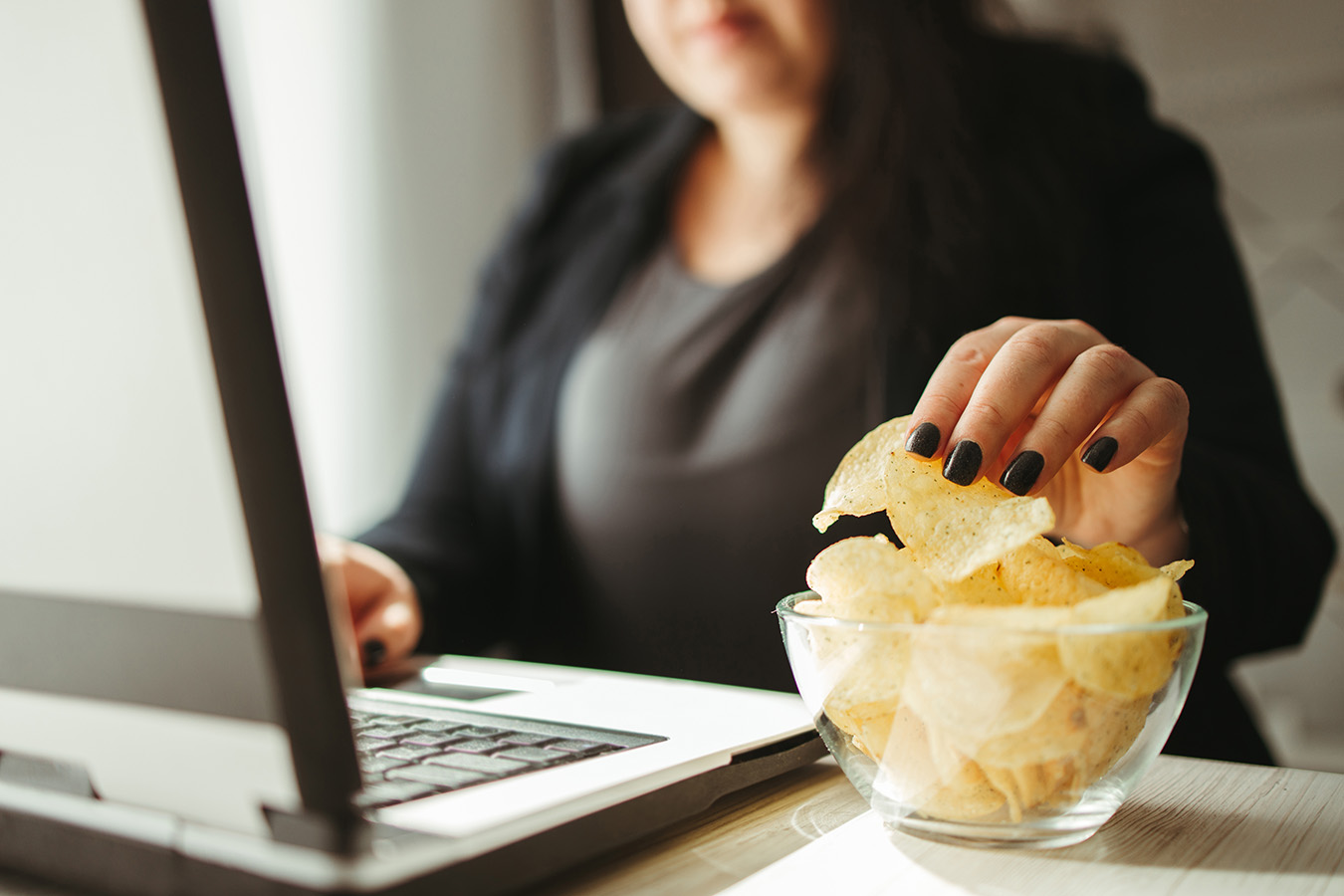Stop Stress Eating

Over the past few decades, researchers have been learning more about how stress impacts the body and mind.
According to the American Psychological Association, there is evidence for stress causing changes to almost all parts of the body, from your bones and muscles to your lungs, heart, stomach, brain, and more.
One common way that stress can impact us every day is by influencing our behavior. The American Academy of Family Physicians says that one of the most common ways that this manifests itself is with emotional eating or stress eating.
Why do we stress eat?
There are a number of reasons people turn to food when stressed, nervous, or bored, says Michelle Pearlman, M.D., a gastroenterologist with the University of Miami Health System.
Part of it is biological: Stress has been shown to trigger appetite-related hormones and other chemical responses that make us want to eat.
“In some individuals, stress increases the want or desire for hyper-palatable foods because these foods stimulate reward centers in the brain that make us feel good, at least in the short term,” she says.
Changes in society and how we process information about food are also fueling this stress-eating fire in many people, Dr. Pearlman says. “In the digital age, people are constantly bombarded with ‘food porn’ that stimulates cravings for foods that we know are not healthy. It is impossible to avoid this.
Social media also promotes concepts that celebrate and encourage indulgence.”
At the same time, people are also inundated with images of thin, beautiful people on social media, which can ultimately lead to stress eating and eating disorders. These two in tandem can be particularly concerning and contribute to serious health consequences if they go untreated, says Dr. Pearlman.
Break free from stress eating
Fortunately, it’s not too late to reshape your viewpoint about food and steer yourself away from the constant cycle of stress eating. Here’s what Dr. Pearlman and other experts recommend:
#1) Talk to a nutrition specialist
Many stress eating habits stem from restrictive diet plans that constantly leave you both stressed and hungry. By taking time to chat with a certified dietitian or health care provider who has nutrition knowledge, you can come up with a healthy eating plan that’s right for you. Talking to a therapist to discuss healthier coping strategies that do not revolve around food can also be very helpful.
#2) Listen to your body
When you are stressed, and you feel like eating, Mental Health America recommends pausing and listening to what your body is actually telling you. Are you truly hungry? Or are you eating because you’re stressed, emotional, or bored? “If you still feel hungry or unsatisfied after a meal or snack, wait at least 10 minutes before you have more food,” says Dr. Pearlman. “Often, the craving will go away.”
#3) Find healthier ways to cope with stress
One, you begin recognizing the signs of your stress and what is leading to stress eating. You can find alternative ways to battle that stress. This might be deep breathing, writing in a journal, yoga, or going on a walk … whatever you enjoy! But most important, don’t beat yourself up for the occasional slipup. This will only lead to shame, anger, more stress, and more eating.
#4) Choose healthier snacks
Of course, not every snack you eat is a moment of stress eating. One way to reduce the amount of snacks, and stay fuller for longer after each one, is to focus on the right food. “Try to eat foods that you enjoy, but that also allow you to feel well and provide essential nutrients, protein, and energy,” says Dr. Pearlman.
Some good choices in this area include lean sources of protein like chicken breast, ground turkey, egg whites, or fish. Fresh fruits and vegetables or healthy sources of fat like nuts and avocados make better snacks than cookies, crackers, or cakes.
Dr. Pearlman also recommends choosing non-dairy milk alternatives like unsweetened almond, oat, or soy milk, as well as non-fat Greek yogurt. And finally, you can cut a lot of calories out of your routine by focusing on calorie-free drinks like water, tea and coffee, and avoiding sugar-laden beverages like concentrated juices and soda.
Wyatt Myers is a contributing writer for UMiami Health News.
Tags: Dr. Michelle Pearlman, emotional distress, food, food choices, nutrition in miami, snacks
